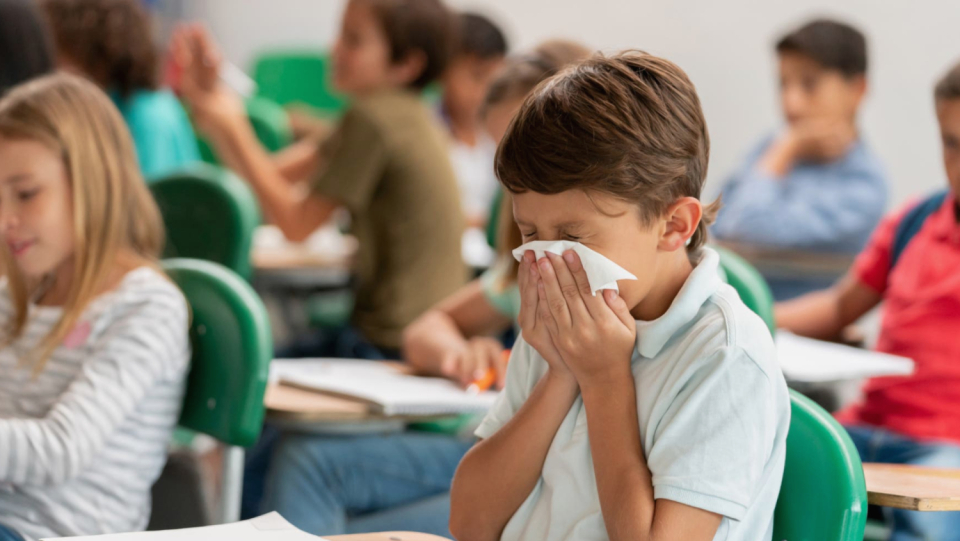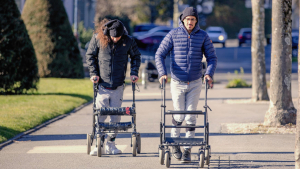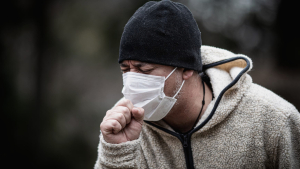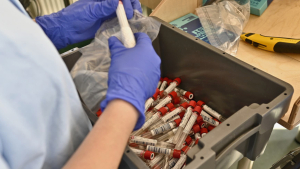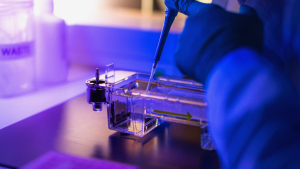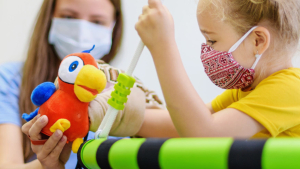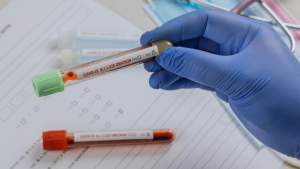Several genetic factors are thought to influence the risk of becoming infected with the Sars-CoV-2 virus in close contact. This is the result of a survey of more than 700,000 customers of the company AncestryDNA, conducted by a working group led by epidemiologist Kristin Rand. As the AncestryDNA team reports in Nature Genetics, point mutations in twelve gene regions are systematically related not only to disease severity – which was already known from previous studies – but also to the probability of infection. The team concludes this from analyses of people who lived with infected people but were not infected.
The group considered twelve mutations in gene regions that had already been noticed in previous studies. So far, however, only people who were already medically treated had been examined. This covered disproportionately relatively heavy courses of Covid-19. The border and team, on the other hand, also recorded data from people with a positive test and very mild or missing symptoms. In addition to already established categories of the difficulties of disease that were supposed to understand the results of previous studies, the working group therefore looked at new categories: despite contact not infected and asymptomatic infected.
According to the team, the current study provided similar results for genetic associations with disease severity as previous studies, despite the very different approach. In addition, the experts identified another group of gene segments that seem to be more closely related to a possible protective effect against infection. These include a point mutation near blood group genes and three mutations in a group of immune genes. According to the team's analyses, some rare variants are significantly more common in people who have not been infected than others.
However, the effects of these mutations are still unknown and thus also why certain variants increase or reduce the risk of infection. However, the affected genetic regions contain a number of genes that are known in connection with Covid-19 and other viral diseases. In addition to the blood groups for which there has been evidence of a connection for some time, the identified mutations concern signaling molecules involved in the antiviral immune response and the enzyme TMPRSS2 involved in the entry of the virus into the cell. The working group around Rand sees in the results indications of possible targets for drugs against Covid-19 – but not before the exact connections have been examined in more detail.







